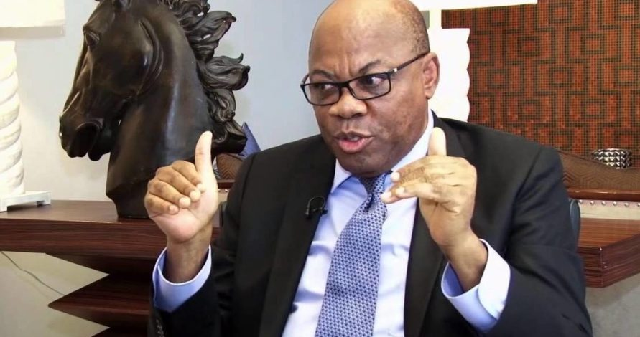Former President of the Nigerian Bar Association (NBA), Dr. Olisa Agbakoba, has said the N10 trillion budget presented to the National Assembly by President Muhammadu Buhari will not take Nigerians out of poverty.
He also advised the federal government to consider legislation on criminal immunity to Nigerians who have plundered the country, as this will lead to massive inflow of Nigeria’s money in foreign banks.
In a statement made available to THISDAY yesterday, Agbakoba, who commended President Buhari for laying the budget estimates in good time, said the country cannot have an anemic budget of N10 trillion for 200 million Nigerians, as this was equivalent to N50,000 per person, per annum.
According to the Senior Advocate of Nigeria (SAN), “This will keep us in poverty abysmally when we need double digit growth. In a country of 200 million people, where 50 per cent is living in poverty, the budget reflects many missing fundamentals.
“The starting point with this budget is a diagnosis of our condition. I would diagnose that Nigeria is afflicted with malignant metabolic economic syndrome complicated by high inflation, high-interest rates, mass unemployment, weak infrastructure, slow growth, unclear borrowing policy, unaccountable subsidy among others.
“On the basis of a gross domestic product of $400 billion, the baseline annual budget should be 20 percent which approximates N20 to 30 trillion annual spend rather than the miserly N10 trillion budget. Our annual spend is weak, and we have to infuse large money into it. For monetary policy, we need urgent quantitative easing, which is easing of all interest rates in particular to slack the heavy burden of high-interest rates on lending afflicting long-suffering Nigerians. We must be very proactive to look for new funds.
“To turn things around, I like to assume that President Buhari has charged the new Economic Advisory Council to give us short and immediate solutions. Working from my diagnosis of Nigeria’s economic disease, we need to work out a macro-economic development framework that lays out a harmonized fiscal, monetary, investment, legal, institutional and regulatory agenda. Fiscal policy or rate at which the government spends must be dramatically expansionary.”
The maritime law expert said traditionally, public revenue has depended on tax and oil receipts, but that there were far too many other sources.
“Also, the maritime sector is laden with cash as well as agriculture and the Blue Ocean, trade and real sector. Also, as controversial as it may appear, revenue that can be derived from new legislation on immunity from criminal prosecution would be huge.
“Government must consider legislation on criminal immunity to those who have plundered us, and we will likely see massive inflows of our money in foreign banks back to us. At present, the money is out of our reach anyway, and I estimate that $100 billion will flow back if we grant immunity from criminal prosecutions but with civil sanctions,” Agbakoba said.
He added that the engagement of the private sector in partnerships would yield a massive stock of revenue, adding that the Dangote, Jim Ovias, Mike Adenugas, Innosons, among others, should be involved the way the Chaebols of South Korea were doing.
The lawyer said the Onitsha-Nnewi-Ogidi market axis can generate up to N10trillion if the proper incentives are offered, noting that foreign and domestic investments in infrastructure were possible if the proper legal institutional and regulatory environment was established.
“Public revenue will be enhanced by at least N3 trillion if we rebase foreign exchange rates from N305 to N360 and remove fuel subsidy at once. We must review public expenditure.
Far too much money is consumed by recurrent receipts. Also, downsizing the government is a task that needs immediate attention by the implementation of the Oronsaye report. Our public sector borrowing requirement needs review so that our revenue to debt ratio is less than 30 percent.
Banks must also focus on their primary function of lending not trading as we have seen in the purchase of treasury bills in excess of N400 billion,” he said.
Source: THISDAY












